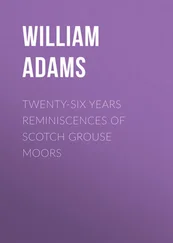John Adams - Fifty Notable Years
Здесь есть возможность читать онлайн «John Adams - Fifty Notable Years» — ознакомительный отрывок электронной книги совершенно бесплатно, а после прочтения отрывка купить полную версию. В некоторых случаях можно слушать аудио, скачать через торрент в формате fb2 и присутствует краткое содержание. Жанр: foreign_antique, foreign_prose, на английском языке. Описание произведения, (предисловие) а так же отзывы посетителей доступны на портале библиотеки ЛибКат.
- Название:Fifty Notable Years
- Автор:
- Жанр:
- Год:неизвестен
- ISBN:нет данных
- Рейтинг книги:3 / 5. Голосов: 1
-
Избранное:Добавить в избранное
- Отзывы:
-
Ваша оценка:
- 60
- 1
- 2
- 3
- 4
- 5
Fifty Notable Years: краткое содержание, описание и аннотация
Предлагаем к чтению аннотацию, описание, краткое содержание или предисловие (зависит от того, что написал сам автор книги «Fifty Notable Years»). Если вы не нашли необходимую информацию о книге — напишите в комментариях, мы постараемся отыскать её.
Fifty Notable Years — читать онлайн ознакомительный отрывок
Ниже представлен текст книги, разбитый по страницам. Система сохранения места последней прочитанной страницы, позволяет с удобством читать онлайн бесплатно книгу «Fifty Notable Years», без необходимости каждый раз заново искать на чём Вы остановились. Поставьте закладку, и сможете в любой момент перейти на страницу, на которой закончили чтение.
Интервал:
Закладка:
CHAPTER XI.
SKETCHES OF MINISTERS
"Insignificant as the denomination of Universalists may now appear in the eyes of the world, it is not to be doubted that the time is coming when it will occupy in this country, and throughout all Christendom, a much more commanding position, and men will ask for the beginning of what they shall then see, and love to read the story of our present struggles and victories." – Rev. T. J. Sawyer, D. D.
IT is within the first century of our national republic, just passed, that this great faith in the universality of God's love and of the work of Christian salvation with man, has gained a prominence in the churches which it had not known since the earlier times of Christianity. It is of the last half century, in connection with the history of this faith, however, that I would more particularly speak, as it is within this period that the work of its promulgation in our own country has been especially realized, its public advocates multiplied, and their ministries extended in many of the States of our Union. Its publications and other educational forces have increased, and, as we have seen, it has identified itself with some of the most significant reforms of the age. Many of its friends and representatives have been among the worthy and excellent of the times in which they have lived, and not a few of its public advocates deserve to be honorably and thankfully remembered in the present and the future for the contributions they have made to the progress of the church in the knowledge of Christian truth and the realization and enjoyment of the Christian life. It is one of the enjoyments connected with the preparation of these pages, that the writer may call them up in memory and speak of them as they appear to him, and note some of their characteristics, and pay them that tribute of respect and honor which they so justly merit.
Though others may appear as their successors in the same high calling, they can scarcely be more faithful or effective in their labors than have these earnest defenders of the Abrahamic faith who have been foremost in its promulgation during the past generation. If many of them now rest from their labors, their works surely follow them, and their names deserve tender and thankful remembrance by their survivors in the church for whose prosperity and honor they so hopefully, bravely, and faithfully taught and wrought.
It should be understood that, in the succeeding sketches of ministers, it is not the intent of the writer to present anything like a full record of all who have faithfully served in this capacity in our country during the time of our church history comprehended in these pages. A complete biographical encyclopædia cannot be compassed in so limited a space. It is from his own particular standpoint of observation and recollection that the writer presents his testimony. Furthermore, it is mainly to those now departed that these references are made.
The Ballous have been conspicuous in this conflict of religious opinions during the present century. Foremost among the family of preachers, most of whom have departed, stands acknowledged Hosea the elder, one of the strongest theologians of the past or present in New England. He lived through half the present century, being nearly thirty years old when he entered it, and was vigorous to the last at the age of eighty-one. The statement of his life-history is not a new one now. The four ample volumes containing it, by Dr. Whittemore, have been extensively read, and will be for years to come. But having known and revered him, it is an unspeakable pleasure to the writer to state his impressions of the man and the preacher.
Hosea Ballou (a native of Richmond, N. H.), came from the home of a worthy Baptist clergyman, whose means of living and supporting a large family were small. He had but meagre opportunities for education, but employed what he had to the best advantage, and became a school-teacher in early manhood. He joined the Baptist Church when quite young, but afterwards grew out of its theology, and became convinced of the truth of Universalism. Discouraged in his first attempts as a public speaker, he grew more confident, and soon attracted much attention, wherever he appeared, as an advocate of his faith. His pastorates were in Barnard, Vt., Portsmouth, N. H., Salem and Boston, Mass. He died in the last-named city, June 7, 1852, after a pastorate of more than thirty years. His two sons, Hosea F., of Vermont, and Massena B., of Stoughton, Mass., have served in the ministry many years.
Mr. Ballou was gifted with great logical clearness, aptness, and force. His preaching was plain, scriptural, and often fervent, and no one could bring home to the hearer the great themes of the Divine Fatherhood and Human Brotherhood more effectively than he. Wakeful indeed must be the theological opponent who could evade the force of his logic. He employed the Socratic method, by drawing the objector out, so that his own statements would confound or confute him. Many valiant ones of the opposite faith were there who could readily assail and denounce his doctrines, where his replies could not reach them, but who would be very sure to keep at a respectful distance from that "sword of the Spirit" which he wielded with such consummate skill.
Of the published works of Mr. Ballou, none have evinced more mental clearness and vigor than his volume on "Atonement," issued in 1805. 36 36 A new edition of this valuable work, with an Introduction by Rev. Dr. Miner, Mr. Ballou's successor in the Boston pastorate, has just been issued by the Universalist Publishing House in this city. It ought to have a new and a larger circulation than ever. The writer owes his conversion to Universalism, by divine grace, to the reading of this book.
Its plainness and adaptedness to the common reader, its sharp logic, and above all its apt and convincing appeals to the Scriptures, render it a timely helper everywhere and always, in the discussion of the theologies which have assumed the Christian name, and which are now being so closely scrutinized. Every reader and student of theology understands something of the old theory of Atonement so long dominant in the Christian Church, so exceedingly perplexing to honest and independent inquirers, so hard to be vindicated by its ablest advocates, and so surely sowing the seeds of scepticism and infidelity in many minds. Volume after volume has appeared in defence and attempted illustration of it. Sin an infinite evil, being a violation of infinite law, and therefore the law requiring an infinite sacrifice, short of which no atonement could be made; the transgression of Adam bringing the whole human race into the same situation of sin and misery, and subjecting them all to the infinite penalty of an infinite law, which they had violated in their parent before they individually existed. In view of this penalty, which was endless suffering, God himself, to placate his own wrath against the delinquents, assumed a body of flesh and blood, and suffered the penalty of the law by death, – not that God himself actually died, but the human body in which he came, – this is deemed the infinite sacrifice by which it is possible for a part of mankind to be saved. "Divines of the greatest ability," writes Mr. Ballou, "and of the first rank among the literati , have drained the last faculty of invention in plodding through the dark region of metaphysics to bring up a Samuel to explain the solecism of satisfying an infinite dissatisfaction ."
Now let us note how the author of "Atonement" quietly sets forth this absurdity. It is all comprehended in a single page of the volume: —
"We will state it as it is often stated by those who believe it, which is by the likeness of debt and credit. The sinner owed a debt to Divine Justice, which he was unable to discharge; the Divine Being cannot, consistently with his honor, dispense with the pay, but says, 'I must have what is my just due;' but as the debtor has not ability to pay the smallest fraction, Divine Wisdom lays a deep, concerted, mysterious plan for the debt to be discharged. And how was it? Why, for God to pay it himself!
Читать дальшеИнтервал:
Закладка:
Похожие книги на «Fifty Notable Years»
Представляем Вашему вниманию похожие книги на «Fifty Notable Years» списком для выбора. Мы отобрали схожую по названию и смыслу литературу в надежде предоставить читателям больше вариантов отыскать новые, интересные, ещё непрочитанные произведения.
Обсуждение, отзывы о книге «Fifty Notable Years» и просто собственные мнения читателей. Оставьте ваши комментарии, напишите, что Вы думаете о произведении, его смысле или главных героях. Укажите что конкретно понравилось, а что нет, и почему Вы так считаете.












